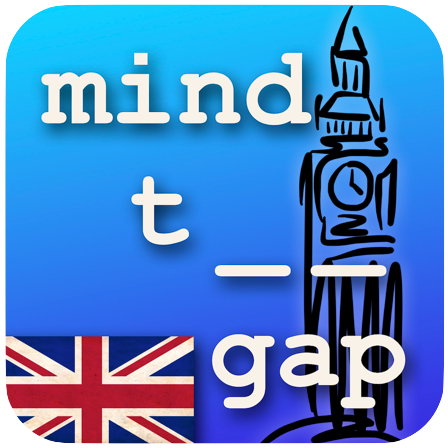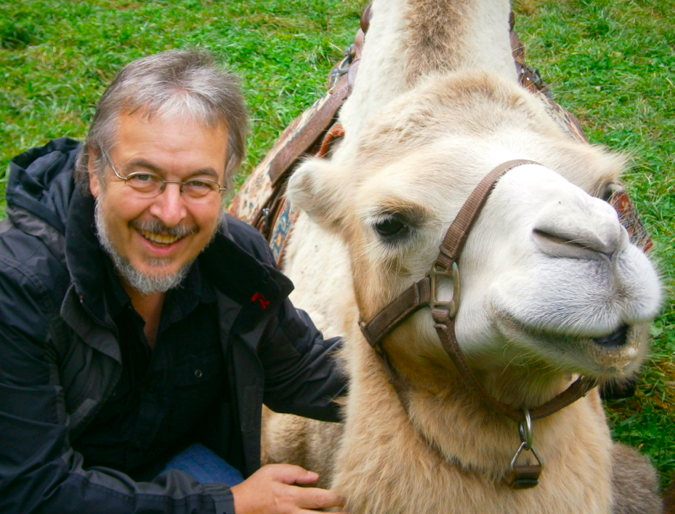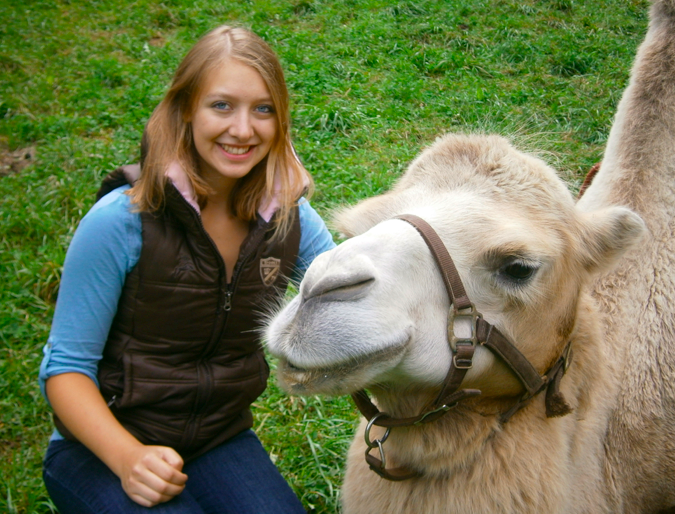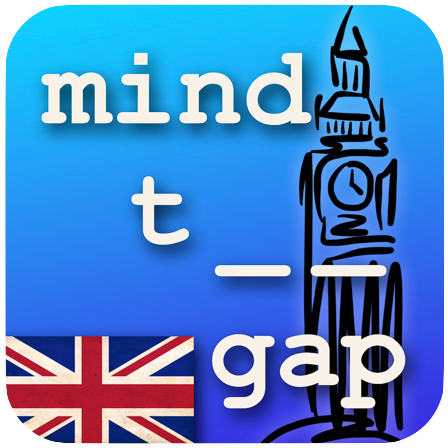What is Mind the Gap?
Mind the Gap is fun and at the same time helps you to improve your English.
The Origins of the Project
The idea behind Mind the Gap developed in summer 2013 when my daughter applied to do English Studies in Munich. She therefor had to pass an aptitude test procedure in which she had to solve so called “cloze tests“. Desperately searching for training possibilities we came to find out that there were only very few practising platforms. Without further ado we agreed to create such a platform ourselves: the idea of Mind the Gap was brought into being. However the way from the idea to the actual realisation is very long and it took over a year to give this father-daughter-project the final touch. We hope you enjoy it!
The Idea
 Mind the Gap pursues the goal of covering a larger picture than just vocabulary and grammar. Instead it equips it‘s users with a natural and idiomatic language comprehension. In fact “cloze tests“ reflect a holistic perspective on language and train several key skills simultaneously. Text understanding works hand in glove with the lexicon and grammatical rules and can be assessed at the same time. Teaching a more natural and instinctive approach to language „cloze tests“ address the problem that not all words that are technically possible fit into a sentence equally well. Due to a “priming effect“ preexisting words in a sentence influence the probability of another word to occur in this context. This means that certain word combination are more frequent than others. Consequently the preexisting context determines the probability of different words to fill a gap. These more or less loose bonds of collocations are carried to extremes in idioms, proverbs etc., in which fix or semi-fix constituents must not be altered. This can be trained in the arcade mode of Mind the Gap.
Mind the Gap pursues the goal of covering a larger picture than just vocabulary and grammar. Instead it equips it‘s users with a natural and idiomatic language comprehension. In fact “cloze tests“ reflect a holistic perspective on language and train several key skills simultaneously. Text understanding works hand in glove with the lexicon and grammatical rules and can be assessed at the same time. Teaching a more natural and instinctive approach to language „cloze tests“ address the problem that not all words that are technically possible fit into a sentence equally well. Due to a “priming effect“ preexisting words in a sentence influence the probability of another word to occur in this context. This means that certain word combination are more frequent than others. Consequently the preexisting context determines the probability of different words to fill a gap. These more or less loose bonds of collocations are carried to extremes in idioms, proverbs etc., in which fix or semi-fix constituents must not be altered. This can be trained in the arcade mode of Mind the Gap.
About us
Jürgen Richter-Gebert
 My dad works as a professor for Geometry and Visualization at the Technical University in Munich. With great enthusiasm and commitment he is devoted to the transfer and modern presentation of knowledge to a broad audience. He started several projects that all share the aim to make knowledge and scientific phenomena tangible for a broad audience. In particular he founded the Mathematics exhibition
My dad works as a professor for Geometry and Visualization at the Technical University in Munich. With great enthusiasm and commitment he is devoted to the transfer and modern presentation of knowledge to a broad audience. He started several projects that all share the aim to make knowledge and scientific phenomena tangible for a broad audience. In particular he founded the Mathematics exhibition
Angela Gebert
 My daughter, Angela-Sophia, studies English and Economical Sciences at the Ludwig Maximilians University in Munich. Since her childhood she is very passionate about language and she became particularly interested in English. In her studies she has a special interest in the structures of language, and the psychological and morphological backgrounds that take place when we hear, read, or produce language. In the Mind the Gap project she was always insistent to keep an holistic eye on the language. She is now responsible for a state-of-the-art content and Public Relations.
My daughter, Angela-Sophia, studies English and Economical Sciences at the Ludwig Maximilians University in Munich. Since her childhood she is very passionate about language and she became particularly interested in English. In her studies she has a special interest in the structures of language, and the psychological and morphological backgrounds that take place when we hear, read, or produce language. In the Mind the Gap project she was always insistent to keep an holistic eye on the language. She is now responsible for a state-of-the-art content and Public Relations.

